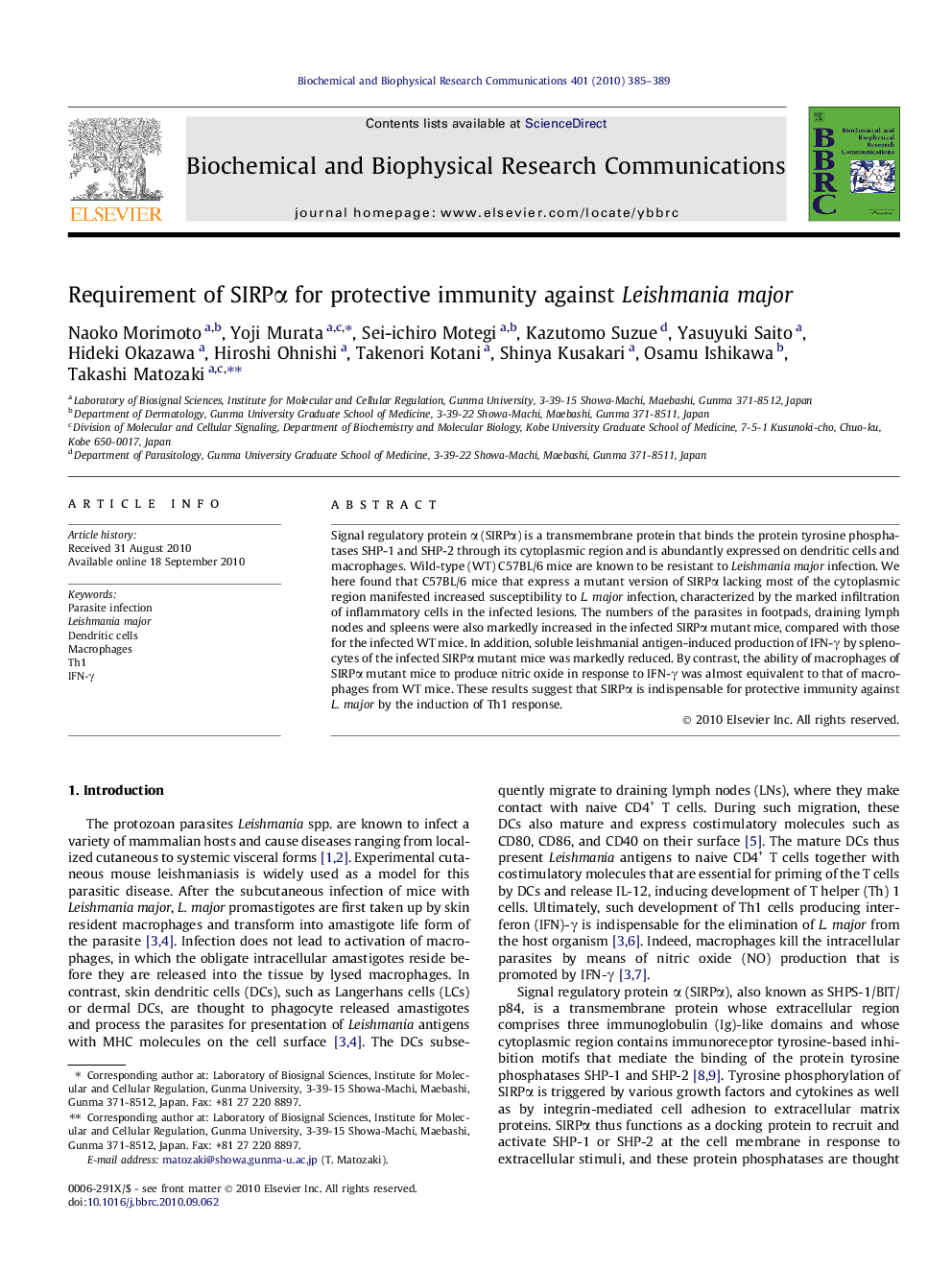| Article ID | Journal | Published Year | Pages | File Type |
|---|---|---|---|---|
| 1931307 | Biochemical and Biophysical Research Communications | 2010 | 5 Pages |
Signal regulatory protein α (SIRPα) is a transmembrane protein that binds the protein tyrosine phosphatases SHP-1 and SHP-2 through its cytoplasmic region and is abundantly expressed on dendritic cells and macrophages. Wild-type (WT) C57BL/6 mice are known to be resistant to Leishmania major infection. We here found that C57BL/6 mice that express a mutant version of SIRPα lacking most of the cytoplasmic region manifested increased susceptibility to L. major infection, characterized by the marked infiltration of inflammatory cells in the infected lesions. The numbers of the parasites in footpads, draining lymph nodes and spleens were also markedly increased in the infected SIRPα mutant mice, compared with those for the infected WT mice. In addition, soluble leishmanial antigen-induced production of IFN-γ by splenocytes of the infected SIRPα mutant mice was markedly reduced. By contrast, the ability of macrophages of SIRPα mutant mice to produce nitric oxide in response to IFN-γ was almost equivalent to that of macrophages from WT mice. These results suggest that SIRPα is indispensable for protective immunity against L. major by the induction of Th1 response.
Research highlights► SIRPα is predominantly expressed on dendritic cells and macrophages. ► The expression of a mutant version of SIRPα in C57BL/6 mice resulted in increased susceptibility of Leishmania major infection. ► Soluble leishmanial antigen-induced production of IFN-γ by splenocytes of the infected SIRPα mutant mice was markedly reduced. ► SIRPα plays an important role in development of protective immunity against Leishmania major.
